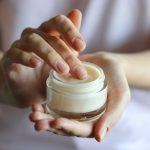
At least 20 million hernia surgeries are performed globally each year, making it one of the most common medical procedures in the world. But does gender matter when it comes to hernia risk? New Australian research says yes: Half of the nearly 436,000 hernia repair procedures performed in adults in that country between 2017 and 2021 were for inguinal (groin) hernias, with men accounting for 89.6% of those operations. And the age-standardized prevalence in men was more than seven times that of women. Inguinal hernias were the most common type of hernia seen in the study. Why are men more susceptible? Researchers say the gender difference is due to higher rates of smoking, heavy exercise, bladder issues, chronic airway disorders, hypertension and heart disease. It’s important that doctors know “those patients who have higher risks of hernia repair, so we can develop health campaigns and policies to improve their quality of life and lower their risks of developing hernias,” study co-author Dr. Marianne Gillam, from the University of South Australia, said in a university news release. A hernia occurs when one of your organs pushes through the muscle or tissue that contains it. This can trigger discomfort and abdominal pain and in severe cases can strangulate the bowel, which requires emergency surgery. In the study, the team turned to data from the Australian Institute of Health &… read on > read on >










-150x150.jpeg)

















-300x200.jpg)







-300x169.jpg)
